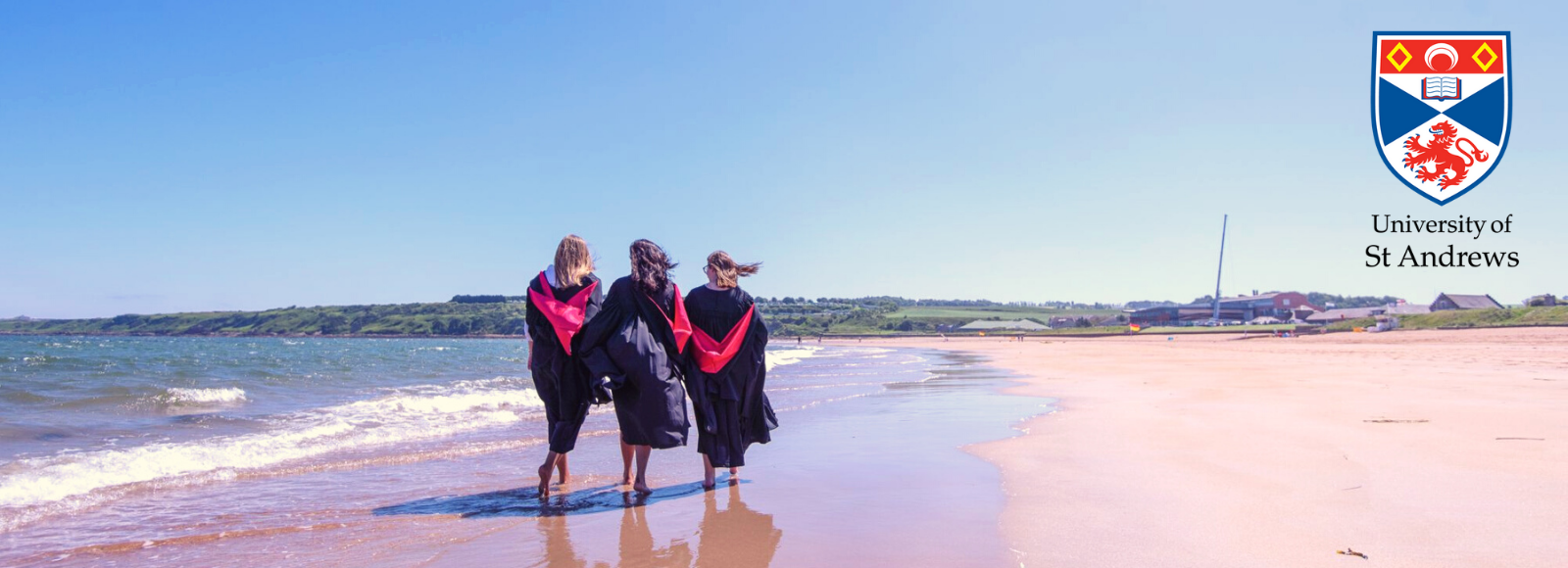- ...
Postgraduate Studentships - Search for funding opportunities.
Postgraduate Studentships - Search for funding opportunities.
International Education programmes are run by the International Education and Lifelong Learning Institute.
Highlights
The number of taught modules you will take depends on whether you are studying for the MSc, PGDip or PGCert:
You will study each module for five weeks, with five face-to-face contact hours for each module. You will study four modules in each semester, two in the first part and a further two in the second part of the semester.
In most modules, you will also interact online in a weekly written discussion forum (or similar activity) with other postgraduate students in St Andrews and around the world, providing the opportunity to learn from peers living and working in a wide variety of contexts.
Typically, you should have one of the following:
For more information about our academic entrance requirements in relation to the education system you studied in, email iellipostgrad@st-andrews.ac.uk.
Recognition of prior learning
Some students may be eligible for recognition of prior learning (RPL) based on their previous studies, such as DELTA. The International Education and Lifelong Learning Institute (IELLI) considers applications for RPL on a case-by-case basis in line with the University's recognition of prior learning policy. To confirm the exact amount of credit you could be awarded, email your relevant transcript to iellipostgrad@st-andrews.ac.uk.
For fees and funding options, please visit website to find out more
International Education graduates are equipped with a range of skills and experiences which allow them to take on a variety of roles. The majority of International Education students work:
Lecturers within the International Education and Lifelong Learning Institute have a wealth of teaching, administrative and leadership experience in education, in a range of locations globally. They are active in using their international networks and experience to support and advise students on future career development.
Current teaching staff have worked in Australia, Bulgaria, China, Finland, France, Hong Kong, Hungary, Ireland, Italy, Japan, Kazakhstan, Kuwait, Martinique, New Zealand, Nigeria, Poland, Portugal, Saudi Arabia, Slovenia, South Africa, South Korea, Spain, Thailand, Turkey, UAE, UK, USA and Vietnam.
Compulsory (MSc and PG Dip)
The following modules are compulsory for those on the MSc and PGDip programmes. If you are studying for the PGCert, you can choose any four modules from this list or from the optional module list.
The modules listed here are indicative, and there is no guarantee they will run for September 2024 entry. Take a look at the most up-to-date modules in the module catalogue.
Optional
Those on the MSc and PGDip programmes will choose three modules from the following list. If you are studying for the PGCert, you can choose any four modules from this list or from the compulsory module list.
Optional modules are subject to change each year and require a minimum number of participants to be offered. Some modules may only allow a limited number of students.
Dissertation (MSc only)
Only those on the MSc programme are required to submit a dissertation.
For the dissertation, you will choose a topic of interest to you and to your future career. You will read related literature and conduct independent research on your topic.
Student dissertations will be supervised by IELLI staff members. Supervisors will provide guidance throughout the research process, helping you to formulate a suitable research hypothesis. They will offer advice on relevant literature and how to plan your time effectively.
The modules listed here are indicative, and there is no guarantee they will run for September 2025 entry. Take a look at the most up-to-date modules in the module catalogue.

Scotland’s first university, an experience like no other Masters programmes to help you find your future. Are you looking to earn an outstanding pos...
Sign up to Postgraduate Studentships
Sign up to compare masters
Thanks for making your selection. Click below to view your comparisons.